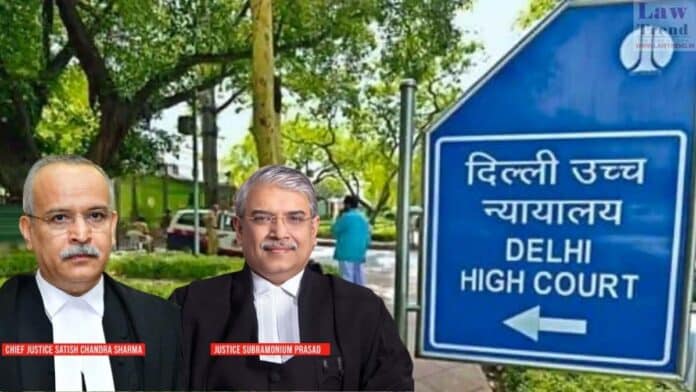The Delhi High Court Tuesday sought the response of the Delhi government, CBSE and NHRC on a petition challenging certain provisions of the Right to Education Act, 2009 for being “arbitrary and irrational” and seeking a common syllabus and curriculum for students of classes 1 to 8 across the country, including madrasas and vedic pathshalas.
A bench of Chief Justice Satish Chandra Sharma and Justice Subramonium Prasad issued notices to the newly impleaded parties Delhi government, Central Board of Secondary Education (CBSE), National Human Rights Commission (NHRC).
Besides, the bench also issued notices to National Commission for Protection of Child Rights (NCPCR), National Council of Educational Research and Training (NCERT) and Council for Indian School Certificate Examinations on the petition and asked the parties to file their replies.

The court listed the matter for further hearing on August 16.
The high court had earlier issued notices to the Union ministries of Education, Law and Justice and Home Affairs on the petition and asked them to respond.
The PIL said existence of sections 1(4) and 1(5) of the RTE Act and the absence of a common curriculum in mother tongue leads to the fostering and perpetuation of ignorance and delays the attainment of fundamental duties.
Petitioner advocate Ashwini Kumar Upadhyay said it is the duty of the Union to effectuate a common education system but it has failed in the fulfilment of this necessary obligation as it has simply adopted the pre-existing National Curriculum Framework (NCF) of 2005 which is very old.
The plea challenged the provisions under the RTE Act which exclude madrasas, vedic pathshalas and educational institutions imparting religious knowledge from its ambit.
“The injury caused to children is extremely large because rather than implementing a common education system for all the children upto 14 years the Centre inserted sections 1(4) and 1(5) to deprive educational excellence to madrasas, vedic pathshalas and educational institutions imparting religious instruction.lA
Also Read
“The petitioner submits that sections 1(4) and 1(5) not only offend Articles 14, 15, 16, 21, 21A but also contrary to Articles 38, 39 and 46 and Preamble,” the plea said.
Section 1(4) of the RTE Act states that subject to the provisions of articles 29 and 30 of the Constitution, the provisions of this Act shall apply to conferment of rights on children to free and compulsory education.
Section 1(5) of the Act says nothing contained in this Act shall apply to Madrasas, Vedic Pathshalas and educational institutions primarily imparting religious instruction.
The plea said the prevailing system does not provide equal opportunity to all children as the syllabus and curriculum vary for each strata of the society.
“It is necessary to state that the purposive and harmonious construction of Articles 14, 15, 16, 21, 21A with Articles 38, 39, 46 confirms that education is a basic right of every child and the State cannot discriminate against this most important right…
“Right of a child should not be restricted only to free education, but must be extended to have equal quality education without discrimination on the ground of child’s social economic and cultural background. Therefore, the court may declare Sections 1(4) and 1(5) arbitrary, irrational and violative of Articles 14, 15, 16 and 21 and direct the Centre to implement common syllabus and common curriculum for the students of I-VIII standard throughout the country,” the plea said.
The petition said a common minimum education programme for the children up to 14 years will achieve the code of common culture, removal of disparity and depletion of discriminatory values in human relations.







